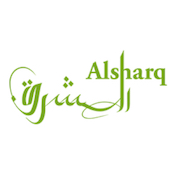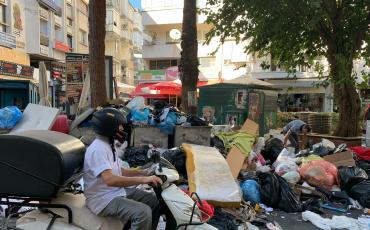Turkey and Israel have concluded an agreement to normalize their relationship after six years of conflict over the deadly Israeli raid on the Mavi Marmara ship which had carried aid and activists to the Gaza Strip in 2010. Gabriel Mitchell answers for Alsharq the most important questions regarding the deal.
According to your opinion, what are the most important points of the agreement?
The most important points of the agreement were the issues that were resolved in the final weeks of negotiations. Turkey had always demanded three things from Israel: a) an apology for the Mavi Marmara incident, b) compensation to the families of those who were killed by Israeli security forces, and c) the lifting of the Gaza blockade. Israel’s Prime Minister Benjamin Netanyahu apologized over the phone in March 2013, and as early as February 2014 there were reports that Israel had agreed on the terms of compensation. So the most important point remained the issue of Gaza.
From the Israeli perspective, the blockade on the Gaza Strip is a matter of national security. Just as it was impossible for Turkey to drop its demand that the blockade should be lifted, it was similarly impossible for Israel to accept this condition. For this reason, the compromise over the Gaza blockade was arguably the most important point in the negotiation process.
There were two additional points worth noting. First, Turkey agreed to drop the ongoing trial against IDF officers accused of being involved in the planning of the Mavi Marmara operation in 2010. However, while Israel demanded that Turkey expels all remaining Hamas members from its territory, in the end it was forced to reach a compromise on this issue as well.
Why was this agreement achieved right now? What were positive conditions and circumstances?
Regional developments were the primary drivers behind the latest negotiation effort. Increasing instability in the Middle East, coupled with the absence of American leadership and the return of Russian engagement in Syria, was enough for both Netanyahu and Erdoğan to set aside their differences for the sake of mutual interests.
One of the positive storylines is the possibility that Israel will export its offshore natural gas via Turkey. Energy cooperation of this kind will require a renewed resolve on both parties to work through their remaining issues and find a common language. Still, the economic potential for this arrangement is significant enough for leaders in Jerusalem and Ankara to invest in such a long term commitment.
Why is the normalization of relations between Israel and Turkey of strategic importance for both countries? In which way does each country profit from closer cooperation?
Israel and Turkey share some overlapping strategic interests in the Middle East, but in recent years they have prioritized threats differently. Regional issues, such as the Syrian civil war, Iran's role in the regional instability, Russian intervention, and the evolution of Daesh, are not necessarily a source of cohesion between the two. Considering their current distrust for one another, strategic cooperation is unlikely to come immediately.
That being said, the deal will bring benefits for both countries, particularly in their struggle against violent extremism. Turkey's decision to lift its veto on a permanent Israeli mission in the NATO will allow greater intelligence sharing and security cooperation against the growth of Daesh. The rapprochement should also contribute to a broader coordination between Israel and the growing number of Sunni states concerned with Iran's role in the region.
Tuesday's attack upon Istanbul’s Ataturk Airport is yet another reminder that in today's Middle East change is the only constant. States seeking stability must find new ways to collaborate with one another, even if it means setting aside their differences. In this sense, the deal struck between Israel and Turkey creates a window for both parties to potentially reengage in the security dialogue that was once the pillar of their relationship. The question remains whether they will take advantage of this opportunity and create the necessary mechanisms for cooperation.
How do both societies perceive this top down deal?
After six years of diplomatic strain, the majority of Israelis and Turks are interested in moving on. However, ultra-nationalists and other political groups on both societies did launch some scathing critique on the deal. In order for the deal to be successful, the leaderships on both sides need to empower their societies and allow them to directly benefit from reconciliation. This could happen through the development of joint economic opportunities, the encouragement of tourism packages for both countries’ populations, the establishment of diverse channels for dialogue, and the increase of civil society cooperation.
President Erdoğan has repeatedly been accused of expressing anti-Semitic views. Can he be a true partner for Israel?
It would be naive to expect Erdoğan to suddenly change his stripes. If there is tension between Israel and the Palestinians, or if using anti-Israel language might increase his favorability in the eyes of the Turkish public, he will return to the rhetoric that the world has become so familiar with.
At the same time, Erdoğan isn't going to tear up the deal on a whim. Rapprochement with Israel demonstrates that he believes this arrangement serves his interests. Therefore, in the immediate future Erdoğan will probably try to avoid crossing any red lines.
Turkey will invest in humanitarian aid and infrastructure projects in the Gaza Strip. Will it also act in the future as an (unofficial) political mediator between Hamas in Gaza and the Israeli government?
Turkey is not the most influential of Hamas' supporters, so expectations that it will be able to mediate between Israel and Hamas are limited. Still, since the disintegration of ties between Hamas and Egypt, Israel has been lacking a channel of communication with the Islamist organization. There are some who believe that Ankara could play this role. But if Turkey's role was limited to playing a humanitarian role in the Gaza Strip it would still be viewed as a net positive by the Israeli government.
Regarding the Israeli-Palestinian conflict: Do you think Turkey has the potential to play the role of a mediator?
There is too much distrust between the two sides that Turkey could be considered to be a potential mediator in the Israeli-Palestinian conflict. Nevertheless, Turkey can be a proponent of reconciliation between Fatah and Hamas, as well as a supporter of the Arab Peace Initiative.
The ups and downs of Israel-Turkey relations have always been determined by the tone of the Israeli-Palestinian conflict – and Hamas knows this. So even though Hamas leadership spoke positively about the Israel-Turkey accord, it would be surprising if its durability was not put to the test in the coming months. Since Hamas took over the Gaza Strip in 2006, there have been four Israeli military operations aimed at deterring the terror organization's activities. If violence was to break out again, Israel-Turkey bilateral ties would be put to the test once more.
Gabriel Mitchell is a PhD candidate in Government & International Affairs at Virginia Tech University and the US Representative for Mitvim - the Israeli Institute for Regional Foreign Policies. On June 25th, just as Israeli-Turkey negotiations were reaching their conclusion, Mitvim Institute and Global Policy Center Istanbul experts met in Istanbul for their 7th policy dialogue. The dialogue was participated by Member of Knesset Ksenia Svetlova (Zionist Union) and Dr. Mesut Özcan from the Turkish Ministry of Foreign Affairs, who made a unique joint public appearance. Discussions focused on producing recommendations for a successful reconciliation process, and on mapping possible implications of the Israel-Turkey deal on regional dynamics, the Gaza Strip, and the Israeli-Palestinian peace process. Following the meeting in Istanbul, the Mitvim Institute and GPoT Center have published a joint policy brief, "Policy Recommendations for Israel-Turkey Reconciliation," which delineates a number of steps that both countries should take in order to ensure a successful reconciliation process. The Mitvim Institute and GPoT Center have been working since 2012 to advance Israel-Turkey relations.
The interview was conducted by Christoph Dinkelaker.
Der Blog Alsharq ist ein Projekt von Ehrenamtlichen. Wenn Du unabhängigen Journalismus zum Nahen Osten nachhaltig fördern willst, werde Fördermitglied von Alsharq e.V.






















